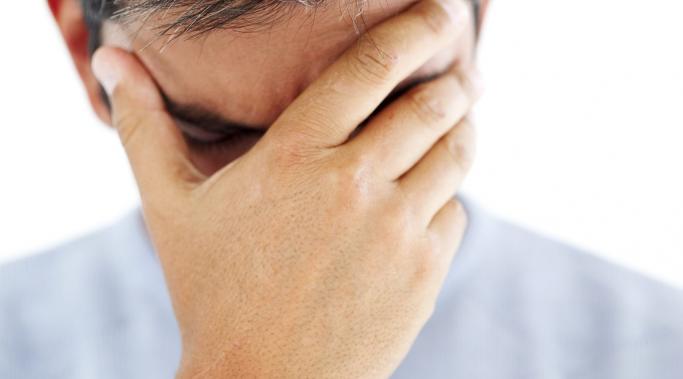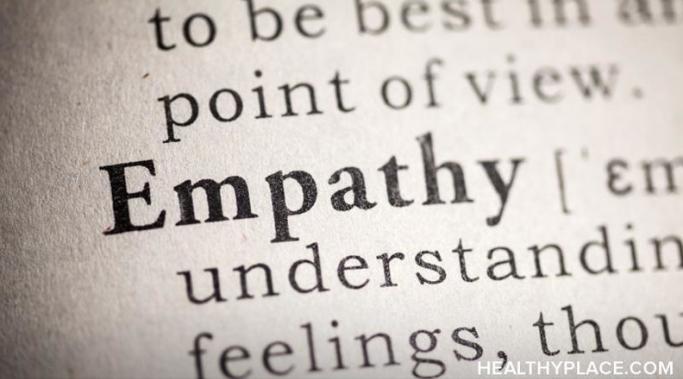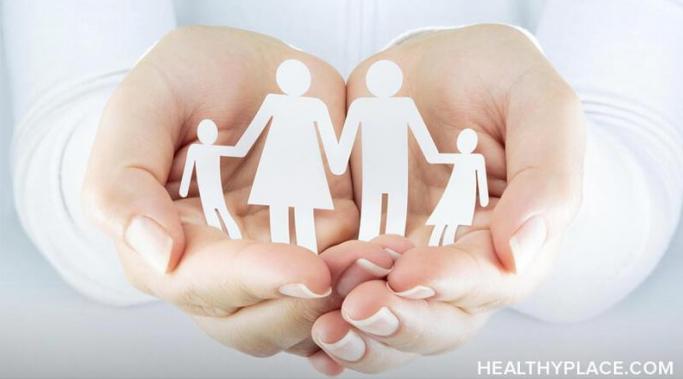Once a person has experience with a person with bipolar disorder, they may assume that they will always have a similar experience with others who have bipolar disorder. In other words, a person may paint everyone with bipolar disorder with the same brush. If the first person with bipolar disorder they have experience with is very intelligent or creative — they may think all people with bipolar are. On the other hand, if their experience with a person with bipolar disorder was very negative, they may assume that all their future experiences will go the same way. Generalizations of any group don't help us, however.
Losing Friends
I have bipolar disorder, and I never ghost people. "Ghosting" is a slang term for when someone cuts off all communication. Some people may doubt that I don't ghost people based on my bipolar diagnosis; however, believe me, I am not a "ghoster." Moreover, I'm not the only one. Just because a person has bipolar doesn't mean they will ghost you.
The suicide of a bipolar online was the news I was greeted with first thing this morning. It was an awful wakeup call. Not a wakeup call in that I was sleeping (although I had been) but a wakeup call in that we all need to be on the lookout of the signs of a possible suicide in ourselves and others. And sometimes I think we forget about this killer. Maybe because we need to in order to survive. But today I want to talk about what happens with the death of a bipolar online.
How many times of you heard, "oh, you can't date her, she has bipolar disorder." Well, okay, you might not have heard it, but many of us have been on the business end of that idea. People have advised others never to date us because we have bipolar disorder. In this video I talk about the stigma of dating someone with bipolar disorder and how it's just prejudice that produces statements like the above.
Many of us know a person who has suffered a bad bipolar outcome. Perhaps the person has lost their friends and family because of bipolar. Perhaps the person lost their job because of their bipolar moods. Perhaps the person became so unwell they ended up on the street. Perhaps the person was driven to suicide.
Those are all very scary and worrying outcomes from a mental illness and, the trouble is, they’re real. I can’t take away your fear and worry by telling you that these things don’t happen because that would be a lie. These things do happen, every day.
But that doesn’t mean that there aren’t things you can do to fight the fear and worry that surrounds bipolar disorder.
A get questions from all sorts of family members and friends of people with mental illnesses and, luckily, many of these people want to help. The trouble is people feel intimidated by a diagnosis of mental illness. They don’t even know where to start to help. This is completely normal. A probable lifetime diagnosis is enough to make anyone feel powerless.
But you are not powerless. If you love someone with a mental illness, there are many things you can do to help.
When people realize they have a mental illness like bipolar disorder or schizophrenia, one of the first feelings they have is fear. And there’s a lot to be afraid of. There are the treatment, doctors, symptoms, side effects and then there’s the illness itself. It’s completely reasonable to feel scared in that situation.
And in that moment, or possibly in a moment shortly thereafter, the fear of abandonment becomes a reality. A very reasonable and realistic fear is that people will abandon you because of the mental illness.
One day I was in a pub eavesdropping on the girls deep in conversation next to me. They were chatting about bisexuals. They were commenting that they would never date a bisexual as really bisexuals were heterosexual that were just playing around with homosexuality and eventually they would “turn back” into heterosexuals.
Well, I, being bisexual was a little insulted by this. I have not “turned” into anything. I simply am bisexual like they are simply gay.
I realized though that it was lucky for me that I heard these girls talking because I could cross them off my list as I have no desire to date sanctimonious, self-righteous, ignorant women.
And I also realized this: it’s their loss.
I’m great.
I only lost sanctimonious, self-righteous, ignorant women while they lost me.
And the same is true of mental illness. When someone rejects you simply because of a medical illness that you didn’t ask for and over which you have no control, you are only losing someone ignorant while they are losing the amazing person that is you.
I am single. I have been single for a long time, actually. It’s OK; I don’t mind it that way. I have my dalliances, I have my friends and I have my cats. It’s a touch stereotypical, but it’s my life.
I have, however, fallen victim to an irrational line of thought from time to time – I really want to couple. Some of this desire is completely rational. It’s normal to want to spend Sundays in bed with someone and have someone to share orange juice with in the mornings.
What isn’t rational, though, is the idea that a relationship will make me “happy,” will make me “better.” In times when bipolar feels it’s darkest, more than anything I just want someone to hold onto even if holding onto someone doesn’t work.
Holding onto someone, however special, will not cure bipolar disorder.
Last night I was feeding my cats and thinking suicidal thoughts - I like to call that a Wednesday night. And I was thinking to myself that no one (save others in my position) understands what that is like - to go from some sort of normal person in the daytime to a sobbing, suicidal headcase at night. I thought about the fact that I have spent eight years talking about this very disease, this very state, this very problem, and yet still, people don't get it. No matter how many words I use, no matter how I phrase it, people simply do not understand.
So what do we do with the lack of understanding by others?







![MP900442827[1]](/sites/default/files/styles/blog_listing/public/uploads/2012/04/MP9004428271.jpg?itok=jPcAEaSI)